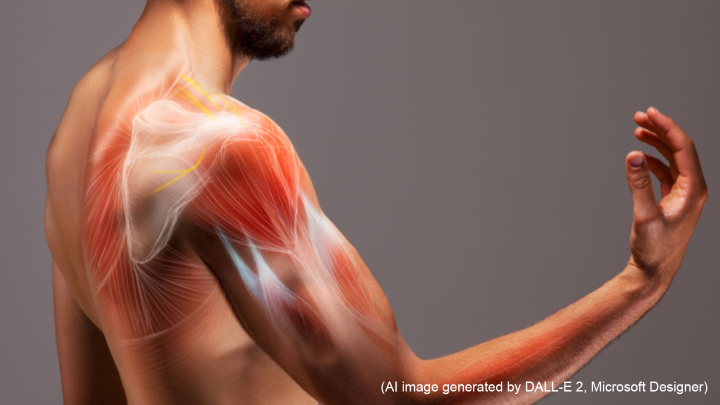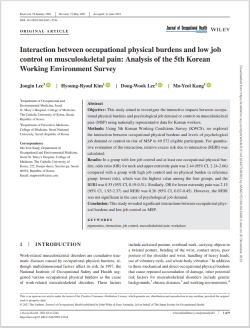#0133 All pain and no gain: How physical and mental work stresses cause muscle pain

All pain and no gain: How physical and mental work stresses cause muscle pain
Musculoskeletal pain (MSP) is one of the most prevalent job-related health burdens. MSP can occur in the shoulders, neck, head, upper and lower back, and arms and legs, adversely impacting an individual’s health. Physical work-related stresses—such as awkward body posture, carrying heavy objects, poor wrist and shoulder posture, work that causes vibrations in various body parts, etc.—and exhaustive work hours, compounded by high job demands, poor job control, low satisfaction, and poor support from coworkers, exacerbate the problem.
Previous studies have involved attempts to investigate the association between either physical or mental stress and MSP, but their combined impact remained to be seen for different occupations.
Now, for the first time, a group of scientists have evaluated the risk of MSP posed by a combination of physical and psychological burdens on the personal and professional lives of Korean workers. They provided questionnaires to 49,572 Korean workers in a variety of occupations, including salaried, unpaid, and self-employed individuals. The participants were questioned about their psychological and work-related stressors. They were also asked if they experienced any MSP-related symptoms. Their responses were evaluated, categorized, and statistically analyzed.
The researchers found that nearly half the participants suffered from at least one physical work burden, and about 32% had a significant level of psychological stress. About 39% of workers had poor job control.
High psychological demands at work caused neck, shoulder, and arm pain, but not back pain. And having at least one physical burden was linked to all types of pain regardless of whether there was a psychological stressor. In addition, low job control coupled with at least one physical burden increased pain in the neck, shoulders, arms, and legs. But low job control alone was not significantly linked to pain in any muscle.
Thus, it appeared that MSP is caused by a combination of psychological and physical demands. And these associations are greater in waged workers than in other types of workers.
The researchers believe that these findings suggest the need for creating a pleasant working environment through improved work culture in addition to taking ergonomic measures to improve people’s musculoskeletal health and quality of life.

Link to the original journal article:
https://academic.oup.com/joh/article/63/1/e12244/7249852
Title of the paper:
Interaction between occupational physical burdens and low job control on musculoskeletal pain: Analysis of the 5th Korean Working Environment Survey
Authors:
Jongin Lee, Hyoung-Ryoul Kim, Dong-Wook Lee and Mo-Yeol Kang
DOI:
10.1002/1348-9585.12244




